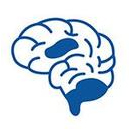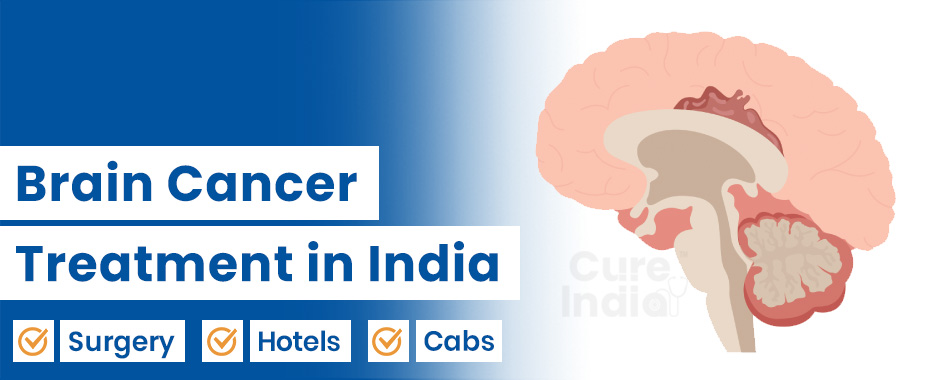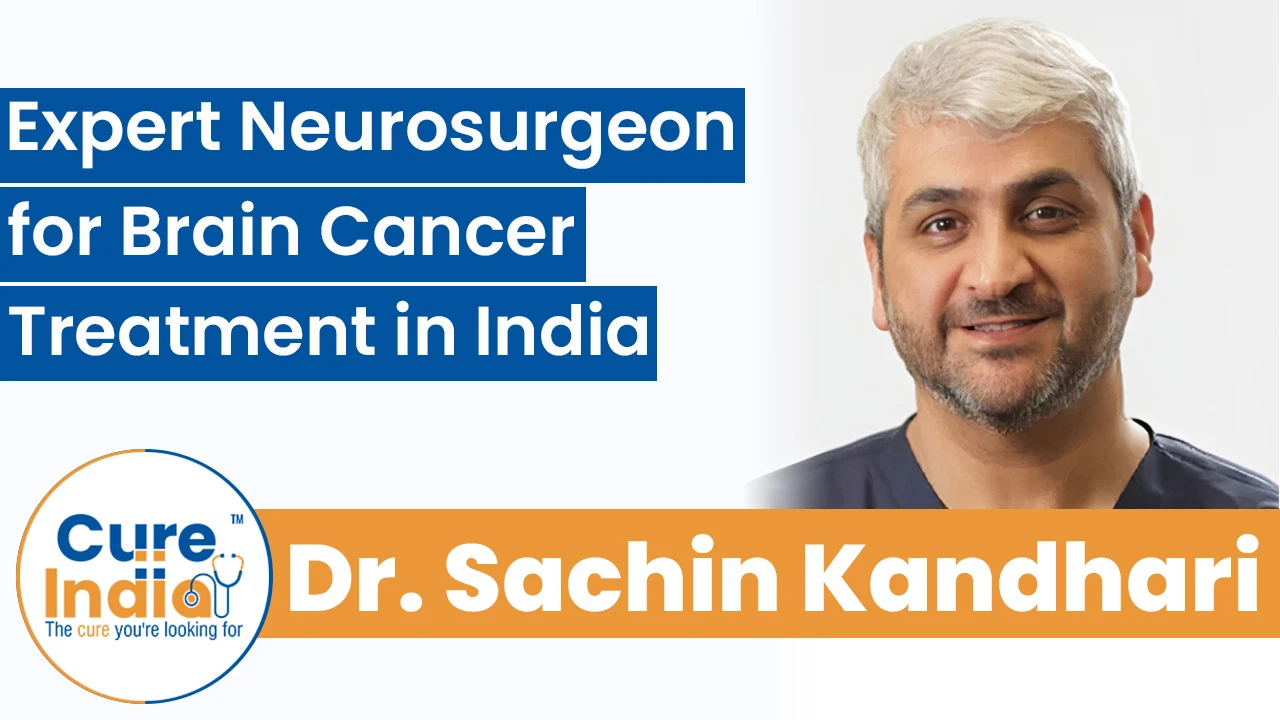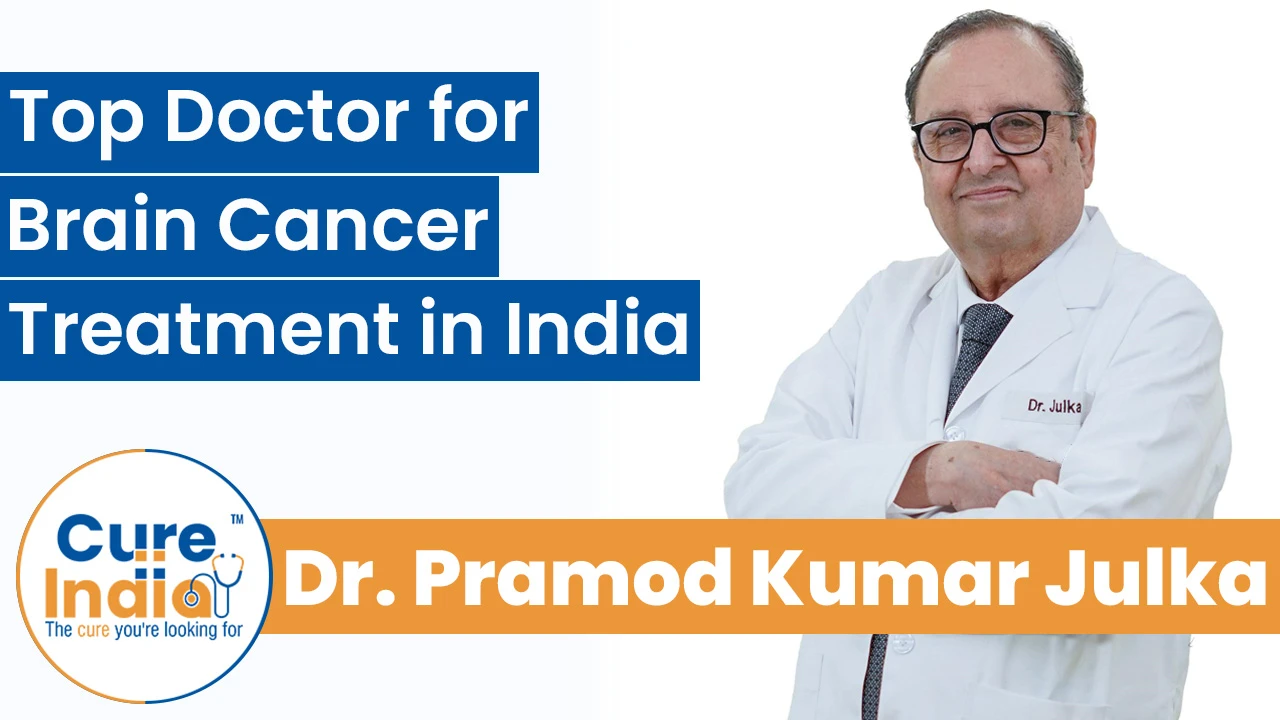

Brain Cancer is a type of cancer that starts in the brain. It occurs when the cells start multiplying uncontrollably forming a mass of cells which we commonly call a tumor. Brain cancer can be cancerous (malignant), which means it spreads from its origin to the different parts of the body or it can be noncancerous (benign), which means that they do not spread to the other parts of the body.
According to the reports, in the year 2023, more than 1,900 cases of brain cancer were diagnosed. If the brain tumor treatment is not started, it can spread to the spinal cord. The tumors in the brain along with the tumors in the spinal cord are known as central nervous system tumors. People who have tumors in the brain, whether they are cancerous or noncancerous, can impact their brain function and their health if the tumors grow large enough that they apply pressure on the surrounding blood vessels, nerves, and tissues. Cancer that starts in the brain is known as primary brain cancer. The cancer that starts in the other part of the body but spreads to the brain is known as secondary brain cancer.
Brain cancer is a catastrophic cancer as many times the brain tumor treatment fails to achieve the desired outcome. Especially in Africa, because African countries have very limited healthcare resources, the diagnosis often fails and the treatment is delayed. The brain cancer survival rate is very low in Sub-Saharan Africa with a 5-year survival of only 32% and median survival of only 2%. According to WHO the diagnosis and brain cancer treatment require proper healthcare infrastructure and facilities including expert medical personnel which are beyond the budget of many African countries.
The lack of proper healthcare systems that are unable to provide adequate diagnosis and treatment has raised severe challenges in resource-limited countries. Due to this reason, a lot of African people from countries like Cameroon, Rwanda, Congo, and Ghana travel to India for the correct diagnosis and treatment options. India has the best and most experienced neuro oncologists who have decades of experience. The cancer hospitals in India have the most advanced infrastructure and world-class facilities. In addition to this, brain cancer treatment in India is also very cost-effective and profitable due to which India has become a hub for different medical treatments.
There are generally two types of brain cancer or tumors:

1) Primary brain cancer which starts in the brain itself, and
2) Secondary brain cancer which starts in other organs of the body such as the liver, kidney, lungs, breasts, etc. and travels or spreads to the brain. Now, depending on the location of tumors in the brain, brain cancers are of many different types. There are more than 150 types of brain tumors that can develop in the brain or the CNS (central nervous system). Not all of the tumors that form in the brain are cancerous, they may be non-cancerous but they cause symptoms that we can call other problems such as headaches, blurred vision, fatigue, etc. So it is important to get the brain canecr treatment even if you have non-cancerous tumors in the brain. The different types of brain cancers or tumors are mentioned below.
The non-cancerous tumors in the brain are known as benign tumors. The benign tumors are noncancerous but they are abnormal and that is why the treatment is needed. If not treated, they can cause vision problems, speech problems, hearing problems, balancing problems, etc. Some of the common benign tumors of the brain are listed below.
■ Chordomas: These are the tumors that grow slowly. They develop at the base of our skull and the bottom portion of the spine.
■ Craniopharyngiomas: These are the tumours that start from a part of a pituitary gland. A pituitary gland is a small, pea-sized endocrine gland. It is located below the hypothalamus of the brain. Because they reside deep in the brain, it is a bit difficult to remove them.
■ Gangliocytomas: They are also known as gangliomas or anaplastic gangliogliomas. There is a rare type of tumor that occurs in the brain and they develop in the nerve cells (neurons).
■ Glomus Jugulare: These tumors develop at the base of the skull and at the top of a jugular vein which is the neck vein.
■ Meninglomas: It is the most common type of primary tumor of the brain. They develop in the meninges of the brain and they usually grow slowly. Meninges are the tissues present in the brain whose function is to protect the brain and spinal cord. There is a rare chance of the meningioma tumors becoming malignant.
■ Pinecytomas: These are the slow-growing tumors that arise in the pineal gland which secretes melatonin hormone. It is located deep in the brain.
■ Pituitary Adenoma: As the name suggests, these tumors arise in the pituitary gland which is located at the base of a brain and secretes hormones. These tumors are slow growing but when they develop, it causes the pituitary to produce excess hormones.
■ Swhannomas: These tumors mostly affect adults. This type of cancer arises in the Schwann cells present in the peripheral nervous system. The Schwann cells are responsible for conducting nerve impulses. They also occur in the nerve that runs from the inner ear to the brain which is known as the vestibular nerve.
Cancerous tumors of the brain are also known as malignant tumors. They are cancerous meaning that they grow uncontrollably and they can spread cancer to other body parts also. That is why it is very important to start the brain cancer treatment as soon as you are diagnosed with cancerous tumors of the brain. The common types of cancerous tumors that arise in the brain are as follows:
■ Astrocytoma: These are the common cancerous tumors that develop in the star-shaped cells known as astrocytes. This type of cancer can develop in many parts of the brain but they mostly arise in the cerebrum.
■ Ependymomas: These types of tumors are formed from the ependymal cells which are also known as radial glial cells.
■ Glioblastoma (GBM): These are the tumors that form in the glial cells which are known as astrocytes. They are fast-growing tumors so the treatment should be initiated as soon as diagnosis is made.
■ Oligodendroglioma: These tumors start in the cells that produce the insulating layer around the nerves known as myelin. These types of tumors are uncommon and do not affect many people.
■ Medulloblastoma: these tumors are most common in children and hence they are also known as pediatric brain cancer tumors. They are fast-growing tumors that develop at the base of the skull.
Brain cancer occurs when the genetic information is changed. In a normal cell, the growth, division, and death of the cell are determined by the information in the DNA. But when the information of the DNA changes, it causes the cell to grow and divide uncontrollably without dying. These are known as cancer cells. The cancer cells grow faster and live longer than the normal cells.
Brain cancer can also be caused when a person is born with multiple faulty genes that are responsible for causing cancer. Many times, exposure to radiation such as x-rays can also cause cancer. There are a few genetic syndromes that you might have inherited from your parents, these include Li-Fraumei syndrome (TP53 gene), Turcot syndrome (APC gene), Neurofibromatosis type 1 (NF1 gene) and type 2 (NF2 gene), and many more. However, it has been reported that only 5 to 10 percent of people diagnosed with brain cancer have a family history of brain cancer. Some of the other common causes of brain cancer are:
The brain tumor symptoms depend on the size and location of the tumor, how fast it is growing (grade of a tumor/cancer), etc. The most common brain cancer symptoms include headaches, trouble in balancing, speech problems, nausea, vomiting, and many more. The other symptoms of brain cancer are listed below.

As you tell about the symptoms you are having, your doctor will ask your medical history and a few questions about your symptoms. Your doctor may also ask about your family history to confirm whether you have inherited cancer-causing genes from your parents. After analyzing the signs and symptoms you are having, your doctor will run some tests if the symptoms show the possibility of brain cancer. The tests are mentioned below.
Your doctor may check if there are any unusual lumps near the head region. He/she will also ask about your health habits and what illness you have had in the past. Because you have the symptoms in different parts of the body, the area where you are experiencing symptoms will be examined.
This test is done to check if your brain is functioning well. Your doctor may ask you a few questions and you will have to answer them. He/she may also ask you to stand and walk to see your balance and how normal you are walking. This is to examine the function of muscles, your reflexes, and your senses because damage in the brain can affect all these abilities of a person.
This is the test that is done to check your field of vision. The field of vision means the total area in which you can see the objects. Your doctor will ask you to look straight to check your central vision and then to look in the other directions to check your peripheral vision. If you have a loss of vision, then you might have a tumor on the part of the brain that regulates your vision.
The imaging tests are not only done before the diagnosis treatment but it is also done during the treatment and after the treatment. By using imaging techniques, your doctor can know the characteristics of your brain cancer and tumor. It also helps in determining in which part of the brain the tumor is located so that the best and safest treatment approach can be selected.
There are various types of imaging tests but the common ones are a CT Scan, MRI Scan, PET Scan, Angiogram, Myelogram, etc. The imaging tests use X-rays or sound waves to create images of the brain from different angles and then merge the images to create a 3D image of your brain.
This helps the doctor determine the location and size of a tumor in the brain. Some of the imaging tests use a special contrast dye which only gets deposited at the abnormal sites such as the tumor site. The dye is then visualized by the machines which creates more detailed and clear images of the brain.
Once the imaging test has shown the presence of a tumor in the brain, a biopsy is done to check whether the tumor is cancerous or noncancerous. A biopsy is a procedure in which a small piece of tumor tissue is extracted as a sample for testing in the laboratory.
The biopsy are of two types for brain cancer:
a) Stereotactic biopsy uses a 3D scanning device and a computer to locate the tumor and to guide the needle which is used to extract the tumor tissue sample.
b) Open biopsy, also known as craniotomy is performed to extract the tissue sample from the part of a skull and brain tissue to examine under the microscope. When examined under the microscope, if the sample is tested cancer-positive, then the surgery will be performed in the same procedure to remove the cancerous tissues.
This test is performed to test the proteins, genes, and other characteristics of tumor cells. These characteristics are specific to the tumor/cancer cells and are not present in the healthy and normal cells. The common molecular tests include histopathology analysis, immunohistochemistry, gene testing, tumor marker testing, cytogenetic analysis, etc.

Treating brain cancer requires specialised knowledge and skills from experienced neurooncologists. CureIndia helps you find the leading brain cancer specialists in India for your treatment. The brain cancer experts in India have years of experience and the necessary expertise to offer the most advanced treatment option. Let us introduce you to the leading surgeons for brain cancer treatment in India.





The minimum brain cancer treatment cost in India can be around $5,000 and it can rise to $7,200. Having said that, the average cost of brain cancer treatment in India is $6,000. The total cost of the treatment depends on the hospital you select, your oncologist’s fees, your overall health and age, the severity of the cancer you have, the type of medical treatment designed for you, post-treatment appointments, diagnostic tests performed, insurance coverage, travel cost, etc.
| Treatment | Cost in India | Stay in India |
|---|---|---|
| Brain Cancer Treatment in India | $6,500 - $7,500 | 15-20 Days |
The choice of treatment for brain cancer and tumors depends on the type of brain cancer a patient has, the age and overall health of a patient, the stage of cancer, the size of the tumor, and the location of a tumor in the brain. Your neuro-oncologist will analyze your diagnostic report and recommend the best treatment for you. Mentioned below are the different options for brain cancer treatment in India:

The first treatment that comes to mind when we think about a tumor in the brain is a brain cancer surgery. A surgical procedure is required to remove the tumor that has formed in the brain. If it is not removed, it can grow in size and cause other problems. If the tumor is cancerous, not removing it will make it grow even larger and even spread to the other organs of the body through the blood vessels and other connective tissues.
In this brain cancer treatment in India approach, high-energy beams of radiation such as X-rays, protons, or gamma rays are used to target the cancer cells in the brain. One of them is cyberknife radiation treatment. Doing this will make the tumor shrink. Your oncologist may give you some medications to reduce the swelling in the brain after the radiation therapy.
It is a mandatory treatment if a patient has a malignant tumor in the brain. Chemotherapy uses drugs that destroy the cancer cells and prevent them from reoccurring. This treatment approach is often used in combination with radiation therapy and surgery.
It is a type of drug therapy in which the medication/drugs are used to identify and destroy the cancer cells. These drugs only target the cancer cells by identifying the cancer-specific proteins and components present only in the cancer cells.
It is a brain cancer treatment in India approach in which the body’s natural immune system is strengthened so that the immune cells present in our body can identify the hiding cancer cells and destroy them.
After the treatment is completed, it is important to visit the hospital regularly to attend the follow-up appointments given by your surgeon. During these visits, your doctor will monitor your overall health and check if there are any signs of recurring cancer.
The number of times you will need to visit your doctor and your brain cancer surgery success rate directly depends on the stage of cancer you had, what kind of treatment you have received, any existing health issues, etc. Make sure to maintain a healthy lifestyle to induce smooth recovery and improve your overall health.
Brain cancer recovery rate can vary from patient to patient. It can take up to six weeks to many months for the complete recovery. Talk to your surgeon about what steps you should follow and what to avoid to recover faster and improve overall health.
The cancer which starts in the brain is known as brain cancer. It is necessary to treat the condition before it reaches an advanced stage. Depending upon the severity of the cancer you have (i.e. the grade and stage of cancer), your oncologist will design the right treatment plan for you. In order to let your doctor plan your treatment, it is important to visit the doctor immediately after you have started experiencing the symptoms of brain cancer.
Only after examining your health and conducting some diagnostic tests, your doctor will confirm that you have cancer in the brain. As soon as the diagnosis is made, brain cancer treatment should be initiated to prevent the cancer from progressing. Contact us at cureindia.com and allow us to help you select the right cancer hospital and cancer specialist in India.
